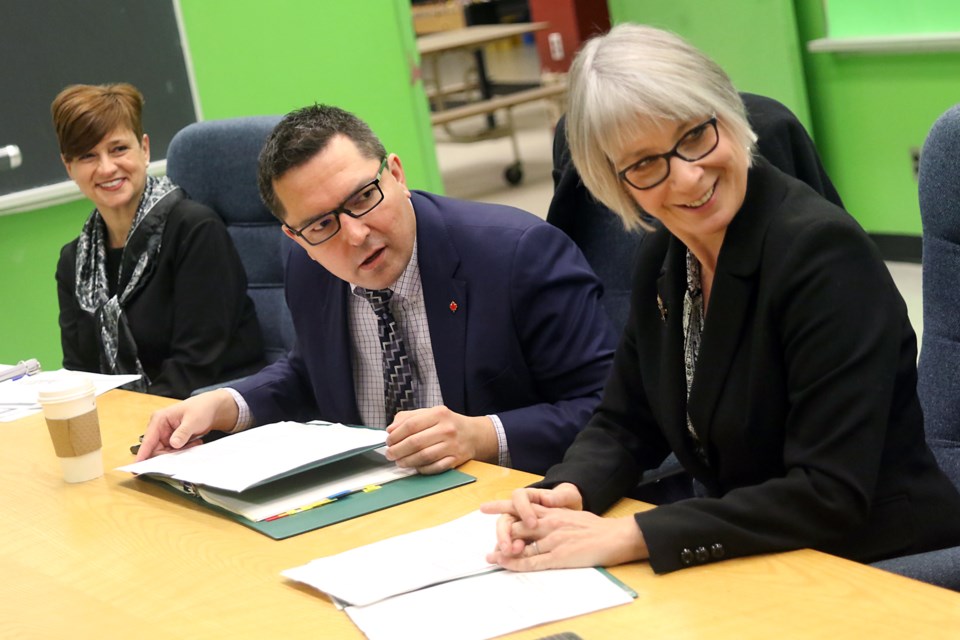THUNDER BAY – About 1.8 million students in low-income families are missing out on up to $2,000 set aside by the federal government to further their education.
Minister of Employment, Workforce Development and Labour Patty Hajdu on Thursday said a lot of eligible families simply don’t realize the Canada Learning Bond program is in place and there are no strings attached, outside of those already governing registered education savings plans.
She’s hoping a country-wide awareness campaign will convince more people to sign up for the incentive, which is only being used by 34.7 per cent of those eligible for the 14-year-old program, which provides $500 in the first year and $100 in every subsequent year until the enrollee reaches 15.
“Lots of people don’t realize it is there and they don’t understand that the money they could get through the Canada Learning Bond is actually free, that you don’t need to match it with a contributing donation,” Hajdu said, adding that oftentimes people are suspicious of banks, another reason for the program's low enrolment numbers.
“They’re not necessarily certain that the money will be there when they need it for their children’s education. So part of our work is to make sure that people understand the program, how easy it is to set up, that anybody can set it up for a child and the money is completely no strings attached.”
According to Statistics Canada, the average undergraduate student paid $6,191 in tuition fees in 2015-16, well below the Ontario average of $7,868, although the province has introduced free tuition at its universities and colleges for students whose families make less than $50,000 a year.
While $2,000 might not make much of a dent over four-years of tuition and other expenses, Hajdu said starting an RESP is often an incentive for families to contribute more when they can.
“What the research shows is that once the RESP is set up, people do contribute to those RESPs, whether it’s grandparents or other family members or the parents themselves,” she said. “They see the amount of money available to them and can take advantage of other matching programs that are available through the RESP program.”
In Canada, an RESP has a cumulative contribution cap of $50,000 per beneficiary, and money can be deposited until the person hits 31. Income earned is taxed at a lower rate upon withdrawal. Through the Canada Education Savings Grant, the federal government will subsidize up to a total of $7,200 until the child hits 17, depending on the amount contributed to the plan.
Sheri Fata, the manager of education and support services at Thunder Bay Counselling, said making parents and caregivers aware of the Canada Learning Bond program is fantastic.
Far too many aren’t taking advantage, she added.
“A big part of the work that we’re doing is trying to help families, especially modest- and low-income families, to understand there are additional supports available for them and that there is free money for their children’s education – that it is real and it is safe,” Fata said.
More details are available here.
